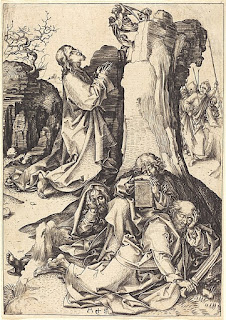Holy Thursday and its Significance
Holy Thursday, also known as Maundy Thursday, occupies a place of great significance in the Christian liturgical year, marking the commencement of the sacred Paschal Triduum—the three holy days leading up to Easter Sunday. This day commemorates the Last Supper of Jesus Christ with His apostles, where He instituted the sacrament of the Holy Eucharist and the priesthood, and gave the new commandment of love. Holy Thursday is a profound celebration of love, service, and sacrifice, capturing the essence of Christ’s mission and ministry.
 |
| Holy Thursday is marked by significant events such as the Last Supper, the Institution of the Eucharist, the Washing of the Disciples' Feet, the New Commandment, the Agony in the Garden, and the preparation for Good Friday. Source. |
The Last Supper and the Institution of the Eucharist
The Last Supper, detailed in the Synoptic Gospels (Matthew 26:26-28, Mark 14:22-24, Luke 22:19-20) and 1 Corinthians 11:23-25, is the focal point of Holy Thursday. During this meal, Jesus took bread and wine and shared them with His disciples, instituting the Eucharist as His Body and Blood, given for the life of the world. This act not only established the central rite of Christian worship but also foreshadowed His sacrificial death on the Cross, offering a new covenant between God and humanity.
The Washing of the Disciples' Feet
John’s Gospel (John 13:1-15) presents a unique aspect of the Last Supper on Holy Thursday, where Jesus washes the feet of His disciples in a profound gesture of humility and service. Through this act, Jesus sets an example for His followers, emphasizing that greatness in His kingdom is measured by one’s willingness to serve. The foot washing ceremony, where the master becomes the servant, powerfully illustrates the inverted values of the Kingdom of God.
The New Commandment
During the Last Supper, Jesus issued a new commandment to His disciples: “A new commandment I give to you, that you love one another: just as I have loved you, you also are to love one another” (John 13:34). This commandment encapsulates the heart of Christian ethics and identity, calling believers to a love that is self-giving, sacrificial, and reflective of Christ’s love for His Church.
The Agony in the Garden
After the Last Supper, Jesus and His disciples went to the Garden of Gethsemane, where He experienced deep agony and prayed fervently to the Father, anticipating His impending passion (Matthew 26:36-46, Mark 14:32-42, Luke 22:39-46). This moment of profound human vulnerability and divine obedience highlights Jesus’ willingness to embrace the Father’s will, underscoring the depth of His love and sacrifice.
Preparation for Good Friday
Holy Thursday concludes with the transition to Good Friday, the day of Jesus’ crucifixion and death. The solemn stripping of the altar in many Christian traditions symbolizes the abandonment and desolation Jesus faced, preparing the faithful for the somber commemoration of His Passion.
Conclusion
Holy Thursday invites Christians to enter deeply into the mystery of Jesus’ Last Supper, His commandment of love, and His sacrificial path to the Cross. It is a day that calls for reflection on the meaning of service, the gift of the Eucharist, and the cost of discipleship. Through its observances, believers are drawn into the heart of the Paschal Mystery, renewing their commitment to live out the love and service exemplified by Christ. Holy Thursday thus stands as a gateway to the sacred Triduum, offering a profound meditation on the themes of love, sacrifice, and redemption that are central to the Christian faith.


Comments
Post a Comment